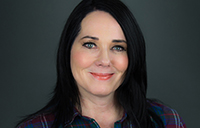
Having students role play characters in a multi-player, online science fiction game is one way to increase their critical thinking skills. That’s the idea behind a new course starting May 9 at York University that has students choosing their own game adventure.
The first-year course – Reasoning about Morality and Values: Critical Thinking Skills for Everyday Life – is offered either fully online or a blended version (part online and part in-class). York U instructor Cael Cohen was inspired to change the way students learn by some of the massively multi-player online role playing games (MMORPGs), such as World of War Craft, Starcraft, and Dungeons and Dragons.
“The idea is to improve the student experience, promote deep learning and educate for social change,” said Cohen. “It is all about learning collaboratively to save Earth. The entire course is a role playing, sci-fiction game with a back story in science fiction lore.”
An award-winning teacher, Cohen has designed some of the course’s video games with several students using Twine, an open-source tool for telling interactive, nonlinear stories.
“I play an alien, Criticare, from the planet Propagandus who takes human form in the game to help lead and guide the students through special operations training. The idea is to save the world from the Propagandans, who have infiltrated positions of power in society and are brainwashing humans,” she said. “The students are resistance rebels who gather at Command Centre disguised as the Moodle course site.”
Working in Guild Platoons, students will earn experience points, reputation points, skill points, status as critical thinkers, and digital badges and trophies. Each week they will play various games and complete multi-level learning quests on their own and as part of a guild to learn the necessary skills to save Earth. The majority of the games are played in Top Hat’s interactive teaching platform, allowing students the ease of playing these games on their cell phones and tablets. Top Hat’s Brennen Green, senior products specialist, and Chief Academic Officer and co-founder Mohsen Shahini, worked closely with Cohen to ensure effective game mechanics.
“Students will learn how to think for themselves from the ground up,” said Cohen.
The course will teach critical skills, practices, techniques, attitudes and principles that students can use in their everyday lives to evaluate how they and others think about morality and values. Students will also learn how to approach ethical disagreements and controversial moral issues, and to critically assess ethical beliefs, arguments and concepts based on relevant and sufficient grounds, rather than passive acceptance.
About 150 students are already enrolled in the course with another 50 enrolled in a blended version. The deep learning model helps students relate to the material being taught; often, it’s to something in their own lives. It goes beyond just memorizing facts.
The students will be required to look for patterns and underlying principles, check evidence and relate it to conclusions, examine logic and argument cautiously and critically.
“They are aware of the understanding that develops while learning and they become actively interested in the course content,” said Cohen.
Design of the course was a collaborative process that began in 2011 with a series of brain-storming sessions with George Brown College student Alex Sabaliauskas, an experienced gamer who worked as a research assistant on the game design. Some of the games were designed in collaboration with York undergraduate students and experienced gamers: Estefania Alfonso, Jason Pennells, Sepehr Sedighianrad and Syed Omair Ali. Goran Matic, MDes, Candidate in Strategic Foresight and Innovation, OCAD, facilitated effective game design sessions.
York U Educational Designer and Developer Daniel Becker of the Faculty of Education contributed significant, helpful feedback on the course syllabus and user’s manual. Sanja Begic, learning technology support specialist, and Alex Neumann, web coordinator, at York’s eLearning Services, provided needed training and expertise to gamify the Moodle course site.
Cohen will also hold a critical thinking workshop series, Become a Better Critical Thinker, in High Park starting this spring and summer. The free, outdoor public workshops will start May 14 and run the second Saturday of every month from 2 to 4pm until Labour Day, weather permitting.
The first workshop, How to Read for Meaning: Understand Arguments and Ideas Better, will teach participants how to mark up a text passage using a step-by-step process with the aim of uncovering, diagramming and assessing the argument, and the author's use of ideas.
Bring a blanket, lawn chair, pen and clipboard, and sit back and learn how to become a better critical thinker. Workshop materials are free and include: a worksheet containing a short passage, a handout outlining the step-by-step process and a sheet of paper for making notes.

